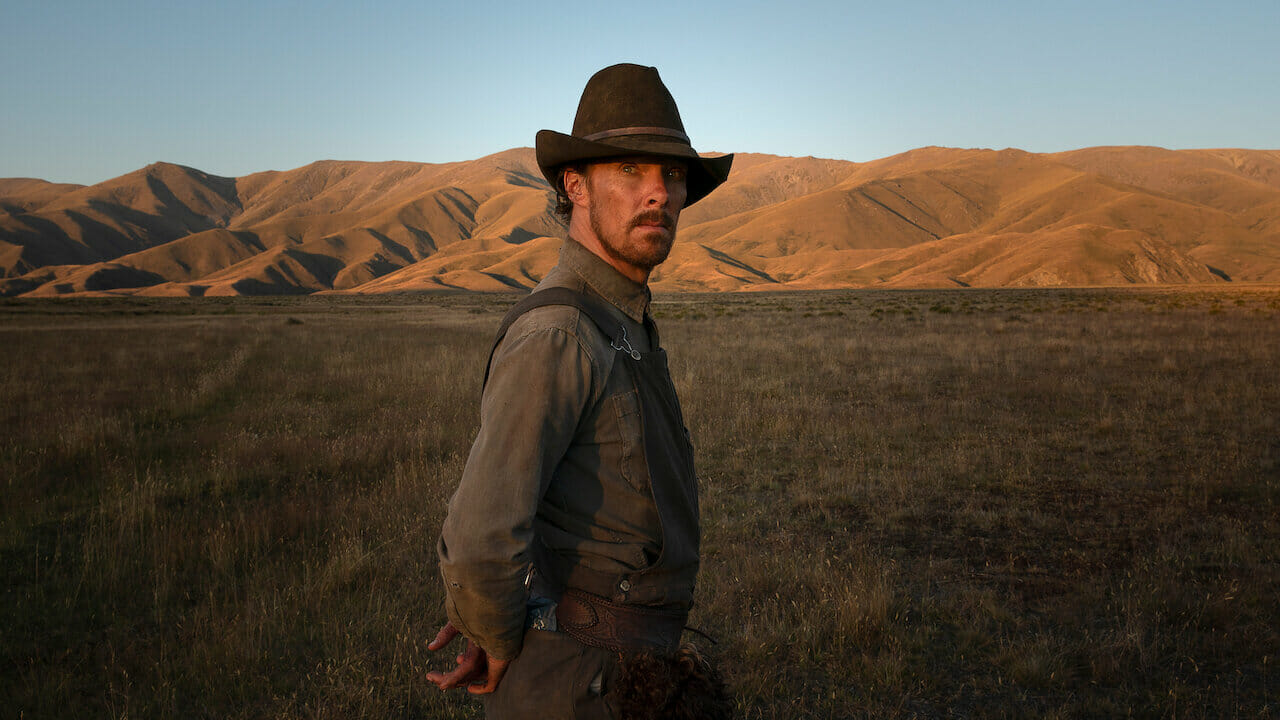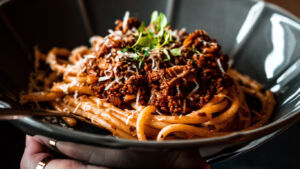The Power of the Dog is the first film in over a decade from Jane Campion, the esteemed director of The Piano. Rather than return to the screen by dipping her proverbial toes in the pool, Campion is diving headfirst into themes that flourished throughout her career. The novel she’s adapted—a 1967 Western by Thomas Savage—is a dense psychosexual drama grounded in the attitudes of prohibition-era America. Benedict Cumberbatch stars as Phil Burbank, a gruff, vindictive rancher who’d spit at a name like Benedict Cumberbatch. When his brother starts courting a widow with an effeminate son, Phil’s anger curdles into violent homophobia—but his hatred is more internalized than even he realizes.
The film has been near-unanimously declared as a masterpiece on arrival. In some ways, its critical reception was a foregone conclusion. The Power of the Dog is an acclaimed novel adapted by an acclaimed director, a timely story from a timeless era. Additionally, during Campion’s hiatus, some of her weaker films have been retroactively crowned misunderstood classics. Now that she’s back, there’s an implicit desire to right critical wrongs and effuse the praise that she deserves—and make no mistake, she does deserve it. Campion is an incredibly discerning filmmaker. Whether she deserves that level of praise for The Power of the Dog, however, is another matter.
READ ALSO: Review: ‘Eternals’ will make you miss better MCU efforts
What the film does well, it does remarkably well. Campion has a keen eye for iconography. The symbols peppering the film are like the biting of lips: subtle, suggestive little movements that, given the subject matter, swell with sensuality. An extreme close-up of a fly’s legs brushing a horse’s back—playful, delicate caress. A wide shot of mountains surrounding the family ranch—trapped, closeted beauty. Calloused hands, dripping with sweat, tugging rhythmically on a strap of leather—sex. Definitely sex. At the sight of these images, Phil’s knees would surely buckle, his homoerotic drive unrepressed. Shot by Ari Wegner, the cinematographer behind Lady Macbeth and In Fabric, The Power of the Dog is immersive in its holistic detail. You can feel the dust in the air, smell the work and the livestock. It’s poetic. Jonny Greenwood’s score, a lavish weave of sweet and sinister, buoys the imagery to tremendous heights.
The performances are just as redolent. Cumberbatch is in fine form—venomous and spiteful, what’s left of his testosterone-choked humanity is all in his eyes and body language. His American accent can be difficult to understand, but what’s unsaid is the linchpin of his performance. Jesse Plemons, playing Phil’s brother George, is an ever-reliable actor, and his work here is no exception. He masters the role of a man of few words: when he speaks, we listen; when he’s moved, we’re moved. It’s Kirsten Dunst, though, who runs away with the movie. She’s jaw-droppingly good as Rose, Phil’s new sister-in-law and the target of his ire. After Phil’s bullying pushes her into alcoholism and depression, Dunst’s performance unfolds into a tragic embodiment of brokenness. Her facial contortions are enough to provoke tears. She’s a consummate downer.
But the connective thread that links these performances and images together—the screenplay—is flimsy. The Power of the Dog’s pacing exposes an emptiness that prose used to fill. Like the novel, the film is divided into chapters and makes multiple jumps in time, but the adaptation is too stripped-back to let that structure flow. There’s a stop-and-start movement to the film that narration can mitigate in literature: where prose facilitates emotional buildup in small but constant ways, the film feels like it’s jumping to different phases of the story between scenes. Phil is such an obstinate man that the tiniest shifts in his character are like mountains moving—missing out on the minutiae of that process keeps him at a distance, particularly during the first half of the film. As is the case with Campion’s adaptations, the novel’s dialogue has been minimized in favor of evocative looks and meditative silences. Cumberbatch’s performance is good, but it’s not good enough to fill the space left by the dearth of description and dialogue.
Phil feels most multidimensional as the film approaches its finale, which is amply dramatic and surprising. It’s not too little, but it’s too late. The meat of the film consists of evocative moments that don’t coalesce enough to compel. The Power of the Dog is like a gorgeous painting inspired by the novel: its themes and textures have been rejuvenated by the brush of a master, but the fullness of the story can’t be captured in brushstrokes, no matter how finely layered they are.
★★★ (3/5)




